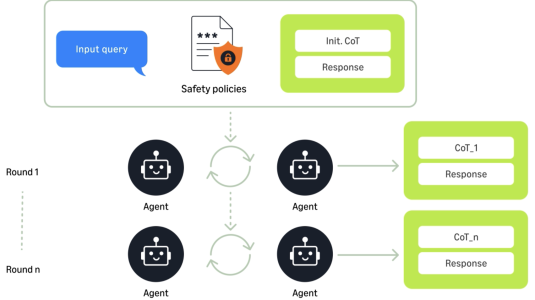Customer-obsessed science


Research areas
-
July 31, 2025Using ensembles of agents to generate and refine interactions annotated with chains of thought improves performance on a battery of benchmarks by an average of 29%.
Featured news
-
We present a novel approach to automatically generate task-specific synthetic datasets for hallucination detection. Our approach features a two-step generation-selection pipeline, where the generation step integrates a hallucination pattern guidance module and a language style alignment module. Hallucination pattern guidance makes it possible to curate synthetic datasets covering the most important hallucination
-
MERLIN: Multimodal & multilingual embedding for recommendations at large-scale via item associations2024Product recommendations incentivize customers to make multiunit purchases by surfacing relevant products, leading to lower cost per unit for e-commerce stores and lower prices for their customers. However, the humongous scale of products, implicit co-purchase asymmetry and variation in co-purchase behavior across different categories, are orthogonal problems to solve. To address these problems, we propose
-
NIST 2024 Workshop on Formal Methods within Certification Programs2024It appears that the winds-of-change are blowing for formal verification of cryptographic software and, furthermore, those winds are blowing in the same direction. We perceive progress on several fronts: - Researchers in the mathematics of cryptography now publish formal specifications and proofs of security properties as a matter of course in their papers using language like EasyCrypt[10]. - Formal (yet
-
2024Automatic extraction of attribute preferences from search queries is a critical problem in providing accurate product recommendations to customer. The task becomes even more challenging in cold-start settings where we do not have any supervised/labelled data available to train ML models. In this work, we implement a novel dataset generation pipeline (LLM-API) that leverages Large Language Models (LLMs),
-
CVPR 2024 Workshop on AI for Content Creation2024Controllable text-to-image (T2I) diffusion models generate images conditioned on both text prompts and semantic inputs of other modalities like edge maps. Nevertheless, current controllable T2I methods commonly face challenges related to efficiency and faithfulness, especially when conditioning on multiple inputs from either the same or diverse modalities. In this paper, we propose a novel Flexible and
Academia
View allWhether you're a faculty member or student, there are number of ways you can engage with Amazon.
View all





























